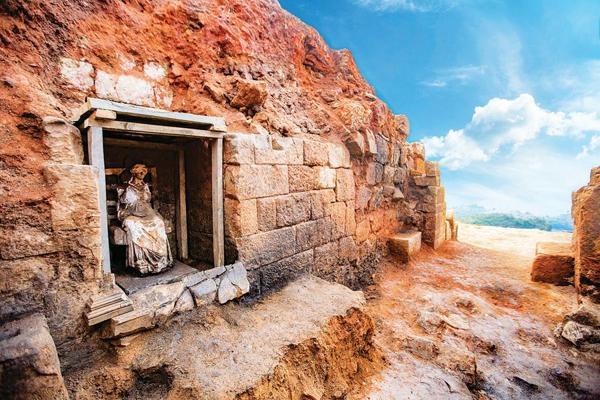Excavations will begin in Ordu’s Kurul Castle
ORDU


An allocation of 90,000 Turkish Liras have been given for this year’s archaeological excavations in the Kurul Castle in the northern Turkish province of Ordu, said Ordu Culture and Tourism Director Uğur Topalak. He said the works would start this week in the castle.
Speaking to state-run Anadolu Agency, Toparlak said the excavations started eight years ago in the 2,300-year-old Kurul Castle, which is the first scientific archaeological excavation filed in the eastern Black Sea region.
In 1996, the Cultural and Natural Heritage Preservation Board declared the castle as a first-degree archaeological and natural site.
He said the castle had no problem with the budget allocation and excavations would start with a team of nearly 20 people this week, adding that the team would come to Ordu to make final preparations.
Toparlak said as in previous years, the works would be carried out by Gazi University Head of Archaeology Department Professor Süleyman Yücel. “It is expected for the excavations to continue for three months this year. We have a budget of 90,000 liras for the first stage. History will come to the surface again here,” said the culture and tourism director.
He said the historic castle was under tight protection with private security guards and cameras and each piece found in the castle was delivered to museum officials.
Kurul Castle is located at the peak of the Kurul Rocks in Ordu’s Bayadı village and dates back to the age of King Mithridates VI, who ruled over Pontus and Armenia Minor in northern Anatolia from about 120 B.C. to 63 B.C. Archaeological digs started in 2010 in the castle.
The castle’s 250-300 stairs were unearthed during excavations, as well as a number of earthenware roof tiles and ceramic pieces. Examinations of the findings showed that a settlement had existed in the castle between the first and second centuries B.C.
Artifacts such as an entrance door, ceramics, coins, arrowheads, and god and goddess busts used in religious and cultural fields, as well as hundreds of burned wood pieces, nails, metal weapons and knives, dagger heads, axes, anchors, cutters and weaving looms were among the pieces unearthed in the castle.
In 2016, a 2,100-year-old marble mother goddess sculpture of Kybele was unearthed during excavations in the castle. The 110-centimeter sculpture was the first marble sculpture in Turkey to be discovered in its original place.
The discovery of the historic Kybele sculpture caused great excitement, with thousands of people rushing to the city to view the sculpture.
